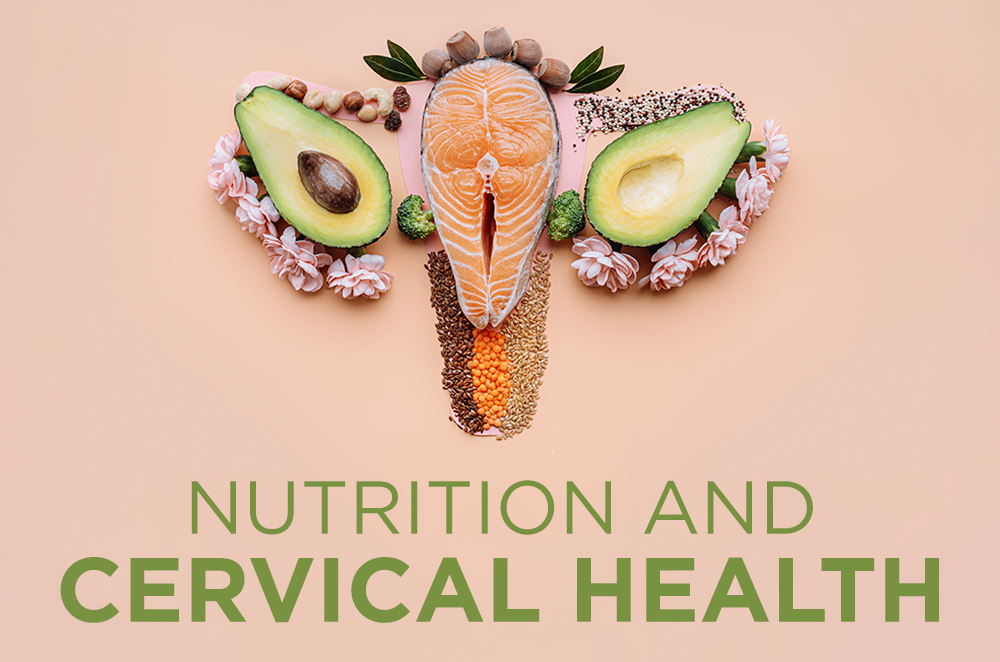Maintaining cervical health is crucial for overall well-being, and nutrition plays a significant role in supporting a healthy cervix. The cervix is a vital part of the female reproductive system, and certain foods can contribute to its well-being. In this blog post, we will explore the relationship between nutrition and cervical health, and identify key foods that can help support a healthy cervix.
Foods that Support a Healthy Cervix
According to an observational study involving nearly 300,000 women, higher consumption of fruits and vegetables, known for their abundance in diverse antioxidant nutrients, is linked to a decreased risk of cervical cancer. The findings reveal that a daily augmentation of 100 grams (g) of fruit, equivalent to approximately 1 cup of cranberries, is correlated with a lowered risk of cervical cancer. Similarly, a daily increase of 100 g in vegetable intake demonstrates a comparable positive effect on reducing the risk of cervical cancer. We’ve provided a list of key foods that will help support a healthy cervix.
Cruciferous Vegetables
Cruciferous vegetables such as broccoli, cauliflower, Brussels sprouts, and kale are rich in antioxidants, vitamins, and minerals. These nutrients play a role in promoting a healthy immune system and may contribute to preventing cervical cell abnormalities.
Berries
Berries, such as blueberries, strawberries, and raspberries, are packed with antioxidants, particularly vitamin C. Vitamin C is known to boost the immune system and may help protect cervical cells from damage.
Leafy Greens
Leafy greens like spinach, kale, and Swiss chard are excellent sources of folate. Folate is a B vitamin that is crucial for DNA repair and synthesis, which is important for maintaining the health of cervical cells.
Citrus Fruits
Citrus fruits like oranges, lemons, and grapefruits are rich in vitamin C and flavonoids. These compounds have anti-inflammatory properties and may contribute to cervical health by reducing inflammation and oxidative stress.
Whole Grains
Whole grains like brown rice, quinoa, and oats provide essential nutrients such as fiber, magnesium, and selenium. Fiber supports digestive health, while magnesium and selenium play roles in immune function and DNA repair.
Omega-3 Fatty Acids
Fatty fish, flaxseeds, and walnuts are excellent sources of omega-3 fatty acids. These essential fats have anti-inflammatory properties and may contribute to overall reproductive health, including the health of the cervix.
Green Tea
Green tea contains polyphenols, which are antioxidants known for their potential cancer-fighting properties. Regular consumption of green tea may contribute to cervical health by combating oxidative stress and inflammation.
Turmeric
Curcumin, the active compound in turmeric, has anti-inflammatory and antioxidant properties. Adding turmeric to your diet may help maintain cervical health by reducing inflammation and supporting the body’s defense mechanisms.
Incorporating a variety of nutrient-rich foods into your diet is essential for promoting cervical health. The foods mentioned above are not only delicious but also offer a range of nutrients that support a healthy cervix. Alongside a balanced diet, it’s crucial to prioritize regular screenings, such as Pap smears, and maintain a healthy lifestyle to ensure comprehensive cervical well-being. We’ve got your back when it comes to keeping your cervical health in check! Our CCMH Women’s Health care team is experienced and ready to take care of you. Check out our website for more information or schedule an appointment today.
Resources:
Disclaimer:
The Comanche County Memorial Hospital website does not provide specific medical advice for individual cases. Comanche County Memorial Hospital does not endorse any medical or professional services obtained through information provided on this site, articles on the site or any links on this site.
Use of the information obtained by the Comanche County Memorial Hospital website does not replace medical advice given by a qualified medical provider to meet the medical needs of our readers or others.
While content is frequently updated, medical information changes quickly. Information may be out of date, and/or contain inaccuracies or typographical errors. For questions or concerns, please contact us at contact@ccmhhealth.com.

